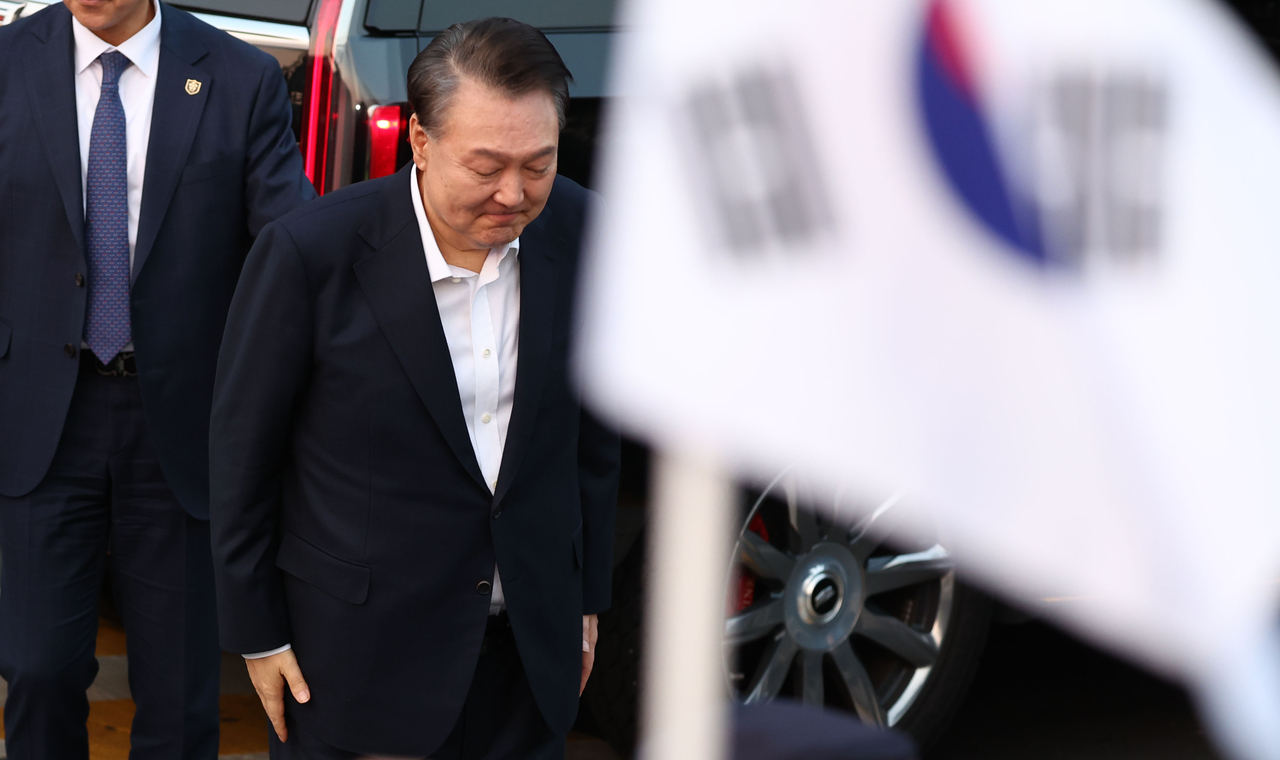Suspended president to refrain from ‘political activity’ while ‘humbly’ awaiting court verdict: presidential office

The Constitutional Court of Korea, currently deliberating suspended President Yoon Suk Yeol’s impeachment trial after seven weeks of hearings, faced a fresh challenge following Yoon’s sudden release from detention on Saturday, with some raising concerns over a possible delay in the court announcing its ruling.
It had been anticipated that Yoon’s impeachment verdict would be out this week, likely on Friday, considering the timing of previous rulings for two other presidents who were impeached.
In these previous cases, former President Roh Moo-hyun’s ruling was issued 14 days after arguments concluded, while former President Park Geun-hye’s ruling took 11 days. Following the timelines of these past impeachment trials, Yoon's ruling is expected to be delivered by the second week of March, as the arguments in his trial concluded on Feb. 25.
But as the prosecution on Friday waived its right to appeal the Seoul Central District Court’s decision to revoke Yoon’s arrest, the suspended president was abruptly freed and returned to the presidential residence after 52 days in detention.
Release has little to do with impeachment trial: legal experts
Though Yoon remains under legal scrutiny as he awaits criminal trial following his indictment for leading an insurrection, his side has argued there were “procedural illegalities” involved in the process of extending his arrest warrant ― a claim that threatens to put the Constitutional Court itself under scrutiny for what some critics might argue was a “rushed” rather than normal impeachment trial process.
During the hearings, Yoon’s legal team had repeatedly requested the court to give them more time to prepare, although the pace of the hearings ― two times a week ― matched that of Park’s 2017 impeachment trial.
Considering the sudden change in circumstances, there is a possibility that the eight justices mulling the decision on whether to uphold or overturn Yoon’s impeachment could take a longer time to make a decision.
Others, however, argue that since Yoon’s release from detention is related to the procedures for his criminal trial, it is separate from his impeachment trial, which focuses on determining the constitutionality of his actions.
Therefore, the most widespread belief among legal experts is that the Seoul Central District Court’s decision to release Yoon will have little effect on his impeachment trial.
The Constitutional Court is also free from criticism for using investigation records from other authorities in Yoon Suk Yeol’s impeachment trial, because none were adopted from the Corruption Investigation Office for High-ranking Officials. Yoon had continually questioned the CIO for attempting to investigate him for leading an insurrection and abuse of power, arguing it only had the authority to investigate abuses of power.
Currently, the Constitutional Court justices are reviewing the arguments and evidence presented in 11 rounds of hearings, along with a court task force comprising 10 researchers who are responsible for drafting the verdict.
Meanwhile, the presidential office said Yoon would “humbly” wait for the court’s verdict at his residence and refrain from political activity, noting that if he does send out any messages, they will be at a “very restrained level.”
However, Yoon is likely to meet with ruling People Party lawmakers and his legal representatives to prepare for his criminal trial.
The suspended president cannot receive any official reports from his aides, but he can still access government reports on current affairs.
“If the Constitutional Court dismisses the impeachment, he will return to the office immediately. To avoid any disruption in state affairs, it is necessary for him to grasp pending government issues now,” said an official from the presidential office.
On Sunday, the presidential office was scheduled to hold a senior secretary meeting chaired by Chief Secretary Jeong Jin-seok. This meeting, held every Sunday, will discuss policy-related matters to be reported to acting President Choi Sang-mok.
ddd@heraldcorp.com






